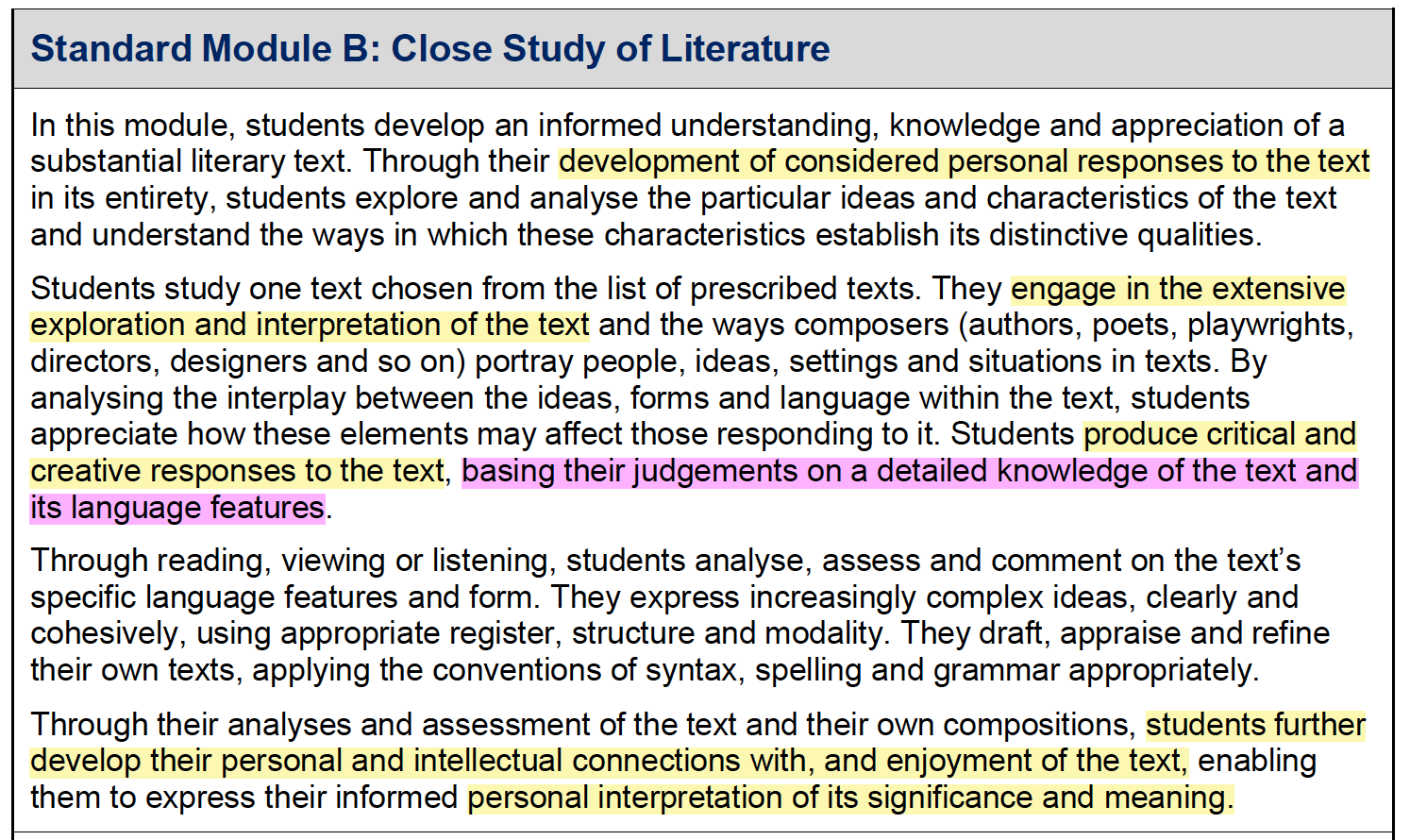Episode 128: Brutal Study Truth #2: Markers Don't Care (and that's great news)
Ep. 128
→ Get the Free Parent Guide: 3 Huge Mistakes (Even Smart!) Students Make in Exams and Assignments - and how to fix them immediately so your teen confidently achieves their best ever grades.
→ Get Brutal Study Truth #1 at: https://www.rocksolidstudy.com/127
This sounds brutal, but actually it is a HUGE source of relief for many students.
If your teen has ever felt like they had to
- come up with some sort of unique perspective on a current social issue,
or
- make a special connection between themselves and a topic they’re investigating,
or
- have an interesting opinion or personal take-away on the Shakespeare text they’re studying,
and (if they’re anything like me) struggle, panic or just have no idea… then you’re going to love this episode!
FEATURED ON THE SHOW:
- Syllabus Prescription example: NESA English Modules
- Follow Rock Solid Study on Facebook
- Follow Rock Solid Study on Instagram
- Get your teen trained by Katie to excel in exams and assessment, using the most effective study strategies in the 10 Week Grade Transformation Program
- Have Katie speak at your school: Parent-Student 'Exam Mastery' Information Evenings for Schools
Excerpt from Module B English Advanced Syllabus (NESA).
(Highlighting is my own:
Yellow - what leads us to believe students need to formulate personal and unique opinions ior connections.
Pink - what tells us they DON'T need to!)


TRANSCRIPT:
You’re listening to The Parents of Hardworking Teens Podcast, episode 128 - This is the second of three brutal study truths - and it IS particularly brutal but also a very big relief for many students.
If your teen has ever felt like they had to come up with some sort of unique perspective on a current social issue, or make a special connection between themselves and a topic they’re investigating, or have an interesting opinion or personal take-away on the Shakespeare text they’re studying. And - if they’re anything like me - struggle, panic or just have no idea with these things… then you’re going to love this episode.
Hey VIP’s. How are you? I am great - and very excited to be sharing Brutal Study Truth number 2 with you today. Now, you don’t need to listen to these in order, so if you missed Brutal Study Truth number one, then you can go back and listen to that after.
This is probably THE most brutal of the 3 that I’m sharing in this mini-series AND also possibly the most subtle. Which I know is a bit of a paradox, but stick with me because I know it has brought a lot of relief to students.
When I say subtle, it’s not something that is necessarily going to get them a ton more marks, but it can make their essays, assignments and reports a hell of a lot faster and easier to get started (and therefore faster and easier to finish) and a lot less confusing, agonising, and stressful.
Okay. Brutal Study Truth Number 2.
Teachers and examiners don’t care about your teen’s perspective, opinions or interests. - From an assessment point of view!
Of course a lot of teachers really do care for their students and take interest in them. But, I’m talking about an essay that perhaps provides a statement - and then says ‘ To what extent do you agree with this statement?’
I’m talking about questions that start with ‘ In your opinion’....
Or assignments that want your teen to consider how this study has shaped their view about something.
As a student, I used to get freaked out by these questions because I was like ‘ I’m just a teenager studying this cos I have to. I don’t have a unique personal opinion on what Dickens was trying to say about society. I don’t know what my personal thoughts are on that issue. Or, I’m not really sure how that science topic actually relates to me and my life.
I get what it’s about, whatever it was that we were studying, but I don’t have any unique take on this. And it hasn’t impacted me. (Apart from testing my ability to complete tasks I don’t want to - I will tell you, I hated reading Charles Dickens).
So, I don’t know about your teen, but for me, if someone had told me that I didn’t actually need to have any unique opinion or take on the novel or play or poem, or have some personal connection to a world issue, then I would’ve been relieved to hear that.
I would’ve found this a very helpful and positive and productive brutal truth!
Now, like I say. The markers aren’t heartless uncaring people.
(Well Some might be, just like they don’t know your teen, I don’t know all of them!) But they have no idea, couldn’t ever know and don’t need to know anything about your teen or their opinions or family life or thought processes in order to dish out or withhold marks.
Even if it looks like and sounds like and they ARE asking for any of these things.
Like this example. It’s from the HSC Module B Advanced English course prescription. This would’ve totally freaked me out as a student. And I am summarising some of the wording here, but it’s just so I can focus in on some of the key terms. In fact, I’ll screenshot this section and just paste that into the podcast episode web page for you, save you trawling through the whole thing.
It’ll be at www.rocksolidstudy.com/128. And I will properly reference the source document so you can go read it in full if you’re really keen.
Now, it says: Students will develop personal responses to a substantial text. They will engage in exploration of the text and produce critical and creative responses to the text.
Students develop their personal and intellectual connections with the text, enabling them to express their informed personal interpretation of it’s significance and meaning. Through informed and personal responses to the text they understand the notions of textual integrity and significance. They strengthen their informed personal perspective. And further develop personal and intellectual connections with the text.
Now, of course for a student who is a literature lover, they might find this exciting.
For me as a student, I would’ve found the expectation to ‘develop personal and intellectual connections with the text’ utterly daunting. Probably still would to be honest!
The words personal interpretation. Exploration of the text. Critical and creative responses to the text. All of this would have made me feel like, and I know it does for students today - because they tell me - it would’ve made me feel like I have to have some sort of epiphany or have it change my perspective on life in some way, or I have to uncover some so far un-recognised meaning or message within the text.
But, here’s a clue to the fact that this isn’t what’s actually required here.
Also from this same syllabus document.
> basing their judgements on a detailed knowledge of the text and its language features.
That means that your teen can and in my opinion should craft AN opinion or A judgement or identify what A connection COULD or SHOULD be - based on what they know the author or creator intended.
They simply have to use the close reading or analysis that they’ll have done in class - or if it’s an unseen text they have to analyse on the spot in an exam - DO a systematic close analysis on the text - to understand what the audience is SUPPOSED to think or feel.
And then they decide that they have those thoughts or feelings.
This is where the knowledge of the text comes in. Given the context and background of the writer or artist or playwright or designer, whoever it is - AND the content of the text being studied - what is the key message? What is the creator wanting to get across? What is the theme or purpose of the piece?
Your teen should always know this for whatever the text is.
Because the teacher or examiner has no idea what your teen’s actually thinking, AND brutal truth, they don’t care what they’ve personally taken away from that literary text or how it’s impacted their views on life. NOT in the context of assessment and mark schemes.
What they do know is what that text or artwork was, why it was made, what the author was trying to say, what the audience is supposed to take away from it.
And this is what they want your teen to prove. They ARE the audience.
So, if your teen doesn’t have to have an actual real personal opinion, or doesn’t know whether they agree or disagree with something, here’s all they need to do instead:
Go with the intended or what we’d call ‘close reading’ of the text or source.
What would the average person be expected to think or feel about this?
What do we know was the point or message the author or artist or director was trying to get across?
It does not need to be any personal or unique take.
Now, if your teen doesn’t really know what the point or message or theme is, then they need to. That’s the knowledge part of our knowledge plus application equals success equation. Any text will be being studied as part of a theme. And they should know the context of the text. So if they don’t know those things, they need to prioritise that as that will be part of the content knowledge they’re expected to know and then SHOW through any answer or response.
And they need to be able to state this relevant understanding of the text and back it up with evidence such as the structure, language or literary devices and analysis of that evidence that matches the point or opinion.
And I’ve used English as an example here.
Your teen could use the artist message and show how their artistic techniques convey it, they could state the choreographer’s message and analyse how their choreographic techniques portray it.
This is what the audience is supposed to get or take away and therefore it is simply what your teen is supposed to get or take away. They ARE the audience. And they are not expected to be some high level critic with a unique perspective.
So I hope that brings some relief to you and your teen. I hope that this makes some of those very high level, open or intellectually demanding tasks a little less daunting and a little more approachable.
And look out next week for Brutal Study Truth number 3.
Meet you back here then.
Bye!
© 2026 Copyrights by Rock Solid Study | All Rights Reserved | Privacy Policy






